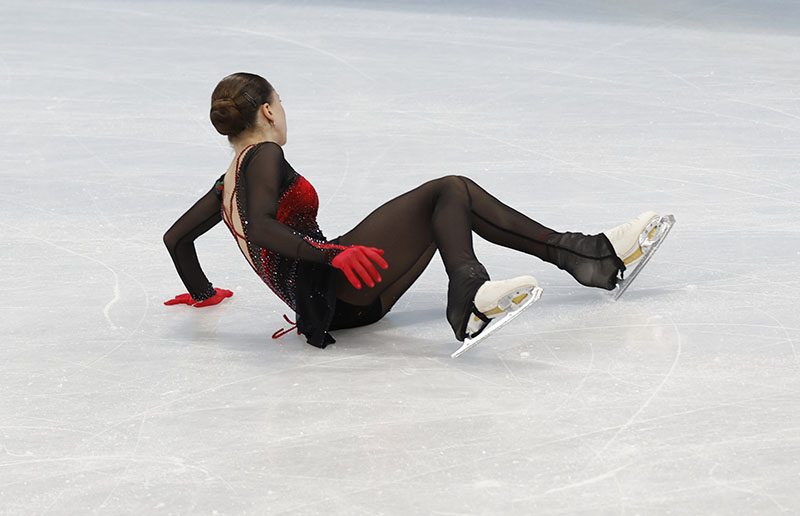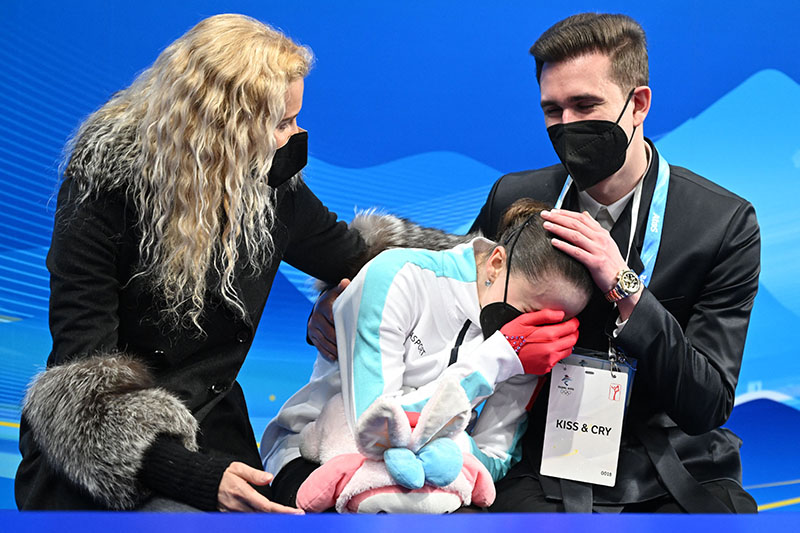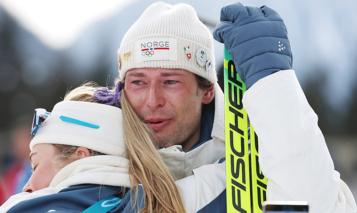
Kamila Valieva of Team Russia made several costly errors during the women’s Free Skating event at the Beijing 2022 Winter Olympic Games in China on Wednesday.
The 15-year-old was favored to win the gold medal in women’s figure skating, but her “uncharacteristic” mistakes left her in fourth place. Beijing Olympics officials had said they would not hold a medal ceremony if she came in 1st through 3rd place.

The visibly distraught teen buried her face in her hands and sobbed uncontrollably while being consoled by “Kiss & Cry” officials.
Her Russian teammate Anna Shcherbakova won the gold in the free skating event.
Russian teammate Alexandra Trusova and Japan’s Kaori Sakamoto (who won silver and bronze, respectively) both cried, while Shcherbakova stood alone for several minutes, unsure of what to do.
RELATED: Sha’Carri Richardson says ‘only difference’ between her and Kamila Valieva is skin color
Valieva made headlines after she tested positive for the banned heart medicine trimetazidine.
Trimetazidine is an anti-angina medication that is prescribed for chest pain caused by lack of blood flow and oxygen to the heart.
The drug is banned because it gives athletes an advantage by elevating the heart rate, thus increasing blood flow and oxygen to the heart muscle.
Valieva claimed the banned drug got into her system when she drank from the same cup as her grandfather, who was prescribed the medication.
However, medical experts told PEOPLE that it was “highly unlikely” that the tiny amount of medication on her grandfather’s lips would be enough to get into her system and be detected by sensitive lab equipment.
Despite testing positive for a performance-enhancing drug, Valieva was allowed to compete in the Beijing Olympics.
The Court of Arbitration for sport, which cleared Valieva to compete, said preventing the teen from competing “would cause her irreparable harm” due to her age.

But American track star Sha’Carri Richardson was unsympathetic. Richardson tested positive for marijuana use and was banned from competing at the 2020 Summer Olympic Games in Tokyo (held in 2021 due to the pandemic).
Richardson, who is Black, claimed a double standard and suggested the only difference in their cases was the color of her skin.
However, Mark Adams, the spokesman for the International Olympic Committee, insisted the two cases are very different.
“Every single case is very different. [Richardson] tested positive on June 19 (2021), quite a way ahead of the Tokyo Games,” Adams said. “Ms Richardson accepted a one month period of ineligibility which began on June 28. I would suggest that there isn’t a great deal of similarity between the two cases,” he added.





